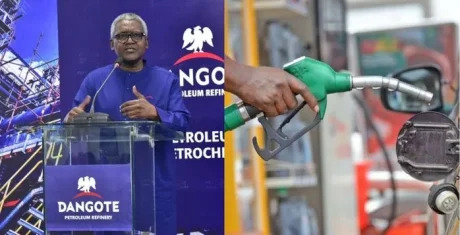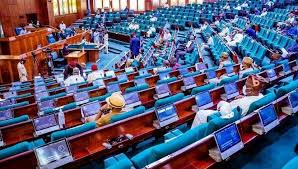
Petrol prices in Nigeria have seen a sharp rise as filling stations in Lagos, the country’s commercial heart, increase the price of a litre from ₦860 to ₦930, forcing consumers to pay ₦70 more per litre than just days ago.
The price hikes have rippled across the country, reaching Abuja and major northern cities, where petrol is now priced between ₦950 and ₦970, an increase of ₦70 to ₦90 from the previous week’s price of ₦880.
Several major filling stations, including MRS Oil & Gas, Ardova Plc, and Heyden, as well as others linked to the Dangote Petroleum Refinery, have implemented the new price. Other outlets such as Matrix Energy, Total Energies, and Mobil have followed suit, reflecting the broader shift in the pricing landscape.
This price increase follows an announcement by the Dangote Refinery, which has temporarily halted the sale of petroleum products in Naira. The refinery explained that the decision was necessary to address a mismatch between its sales proceeds and its crude oil purchase obligations, which are priced in US dollars.
Dangote Refinery, a $20 billion project based in Lagos, revealed that the sales of petroleum products in Naira had surpassed the Naira-denominated crude it had received from the Nigerian National Petroleum Company Limited (NNPCL), prompting the need to adjust its sales currency.
The refinery’s announcement comes after a period of price fluctuations in the sector. In February 2025, Dangote Refinery reduced the ex-depot price of petrol from ₦890 to ₦825 per litre.
Subsequently, the NNPCL followed suit, dropping the price to ₦860 per litre at its retail outlets, both in Lagos and across the country.
While some industry experts have praised the price reductions as a victory against inflated profits, marketers who continue to import refined petroleum products have lamented the financial losses caused by the rapid price drops.
The reduced prices were part of a wider effort to alleviate the strain on the US dollar and stabilize fuel prices, especially after the Federal Executive Council (FEC) instructed the NNPCL to sell crude oil to local refineries like Dangote’s in Naira, beginning in July 2024.
As part of the Naira-denominated arrangement, the NNPCL has delivered more than 48 million barrels of crude oil to Dangote Refinery since October 2024.
The agreement, which was set to expire in March 2025, is now under renegotiation, with the NNPCL indicating ongoing talks to extend or replace it. The NNPCL has already provided over 84 million barrels of crude to Dangote Refinery since it began operations in 2023.
Despite these efforts, the fuel pricing crisis in Nigeria continues to grow, with prices skyrocketing after the removal of the fuel subsidy in May 2023 by President Bola Tinubu.
Petrol prices have more than quadrupled from ₦200 per litre to as high as ₦1,000 per litre, exacerbating the hardship faced by citizens who rely on petrol for vehicles and generators due to Nigeria’s erratic electricity supply.
In December 2024, Dangote’s refinery commenced operations at a capacity of 350,000 barrels per day, with plans to reach its full capacity of 650,000 barrels per day by the end of 2025.
The refinery, which aims to reduce Nigeria’s reliance on imported refined products, has already started supplying diesel and aviation fuel to local marketers, with petrol now entering the market as well.
The rise in petrol prices, coupled with ongoing supply chain and currency challenges, continues to fuel uncertainty in Nigeria’s already volatile energy sector, leaving ordinary citizens and businesses grappling with higher costs in a nation struggling to secure its energy future.





